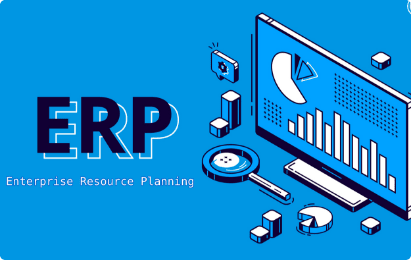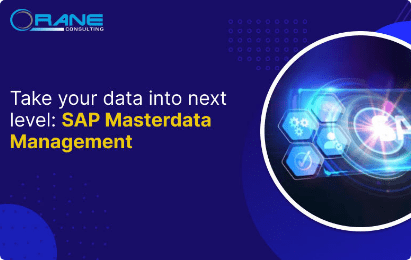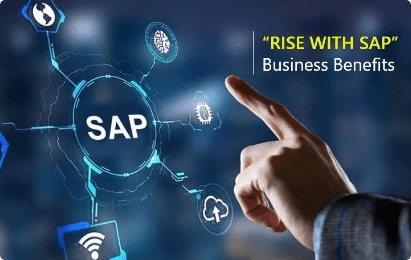
Blog
Orane’s blog posts keeping you up to speed with what’s hot in the world of business.
Have you Powered Up your SAP ERP with Analytics

Introduction:
While SAP ERP has undoubtedly made lives easier for enterprises, there is always a question on how to get more value from an SAP ERP investment? The answer lies in analytics. SAP ERP allows businesses to be more data-centric and allows all functions to create and collect data about their operations. But data by itself doesn’t provide any value to the organization. It needs to be analyzed to derive actionable insights from it. With powerful analytics, businesses can uncover hidden insights from deep inside their business processes and workflows and use these insights to improve their bottom line.
Are you still not convinced about the need to couple your SAP ERP with an analytics solution? Let us have a walkthrough of the benefits that your business will stand to realize when your SAP ERP is powered up with analytics:
Make Smarter Decisions
For businesses to succeed, there is a need for making smarter and more informed decisions across operational, strategic, and financial aspects. Using analytics, business leaders across departments can predict the future of every initiative they carry out based on historic data and can guide them to make decisions that will avoid mistakes and also help in realizing more and faster value from their investments. Stakeholders can get visibility into all facets of their department from ERP data and predict the best path to progress into the next level of growth and align with the objectives and aspirations of the business as a whole.
Optimize Infrastructure
From your SAP ERP, insights on the consumption of stock, vendor supply data, and sales history can be analyzed to make more informed choices on infrastructure investments. Let’s explore this scenario with a simple example. Suppose if you are a with notgrocery retailer within a city selling almost all daily essentials. There comes a time when you decide to expand your warehousing capacity to meet growing needs. Using analytics, it becomes easier to predict the extra space needed for each category of item and plan it better. For example, if meat or frozen food items do not see much movement from historic sales analytics, then you are better off not investing in expanding your cold storage capacity and utilize the existing space only. The space earmarked for cold storage in the new expansion plan can be swapped for some other commodity that is finding more takers in your store. This helps in optimizing investments in infrastructure and will help businesses save tons of money in the long run.
Improve Customer Engagement
Did you know that 80% of customers are likely to return to purchase from a brand if they offer personalized services? To deliver personalized services and keep customers engaged, brands need access to a mature technology framework that can help predict customer needs, tailor inventory, and merchandising to reflect these needs and ultimately improve their shopping experience every time. While SAP ERP helps bring the much-needed data-centric platform that can manage all events in a retail transaction, it needs to be coupled to powerful analytics to help offer personalized offerings to customers when they interact with the brand at any medium be it online or at physical stores.
Enhance Automation
By combining analytics with machine learning and artificial intelligence with data from your SAP ERP, your business can truly propel itself into a highly autonomous organization that meets customer expectations every single time. Intelligent analytics help in creating a more contextual automation landscape across the organization by performing more complex analytical tasks with the aid of machine learning. By combining inputs from different consumer interactions, analytics can help your workforce to better manage customer interactions while redundant manual tasks can be automated and do not require human supervision anymore.
Supplement Marketing Efforts
Your SAP ERP holds a treasure trove of data on the sales made through different channels, the products that find maximum takers, and several other elements of a transaction like preferred mode of payment, timings, and budget ranges. With analytics, this data can be translated into actionable insights that can power your personalized marketing campaigns and can help in improving lead conversions across different channels. A clear example is the positioning and product selections for marketing emails that are intended for cross-selling or up-selling to existing customers. With analytics, it is possible to predict the price range existing customers are likely to make their next purchase, the medium through which they will make the purchase, and also other factors such as the brand or color or any other product features that will influence their decision. Using all this data, your marketing teams can roll out personalized campaigns to help bring in more lead conversions.
Analytics is a powerful mechanism to drive more value from your SAP ERP and businesses that realize its potential can win customer hearts quickly. From improving market competence to helping staff do their jobs better, analytics can impact all areas within your SAP ERP ecosystem and can be the game changer you have always been looking for to drive more ROI from your SAP ERP investments.
Subscribe to our communication
You agree to receive newsletters, marketing communication and latest developments from us.

6 Tips to Boost Your Business Performance
- August 19, 2022

How ERP Implementation is Essential for Businesses? – Top 5 Reasons
- August 19, 2022

Take your Data into next level
- August 19, 2022

Rise with SAP: Business Benefits
- August 19, 2022

SAP Masterdata Management
- August 19, 2022

